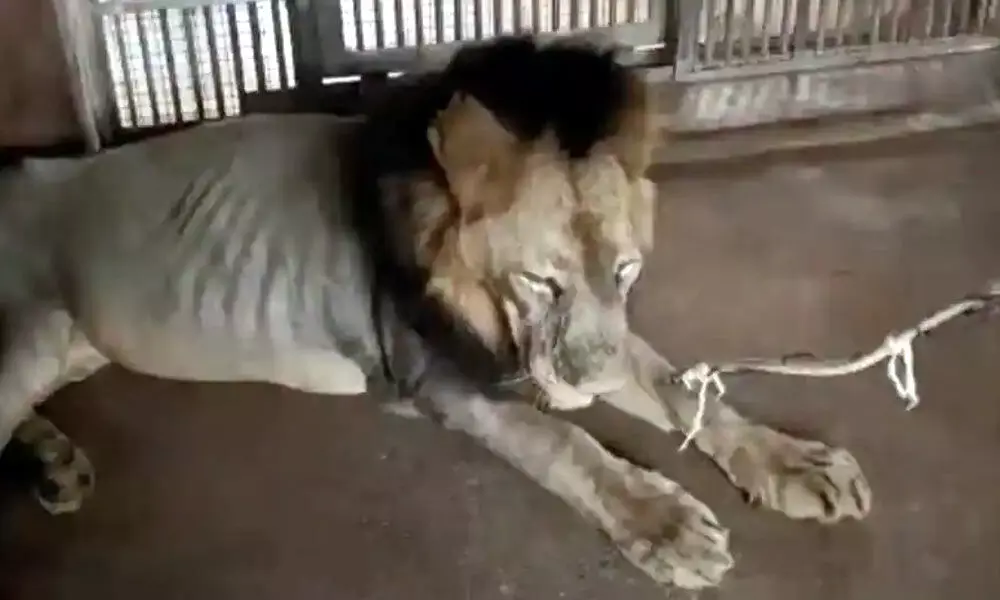Recalling The Measures Taken By Veterinarians To save Lions From the Delta Variant

Lions From the Delta Variant (Photo/zeenews)
- The doctors, veterans and administrators from the Arignar Anna Zoological Park, also known as Vandalur Zoo in Chennai, recounted coping with 15 lions infected with the Delta COVID-19 strain on the World Lion Day.
- COVID-19 positive lions had previously been found at the Bronx Zoo in New York, as well as at Indian zoos in Etawah, Jaipur, and Hyderabad.
Thedoctors, veterans and administrators from the Arignar Anna Zoological Park, also known as Vandalur Zoo in Chennai, recounted coping with 15 lions infected with the Delta COVID-19 strain on the World Lion Day, that was celebrated on August 10.
Astaff of eight zoo veterinarians, spotted a few lions with COVID-19 signs, which become a case of reverse overflow as it indicated that the SARS CoV-2 virus (which causes COVID-19), which is thought to have originated in bats (in Wuhan, China) and primarily harmed people, had now transferred to animals.
COVID-19 positive lions had previously been found at the Bronx Zoo in New York, as well as at Indian zoos in Etawah, Jaipur, and Hyderabad. On May 25, five lions in the zoo's Safari section began to exhibit typical symptoms such as coughing, wheezing, and a lack of appetite.
On June 3, a female lion that one of the five that developed signs succumbed to the viral infection whereas their test results were awaited from various labs throughout India. The test findings were discouraging as 10 of the Zoo's 15 lions were positive, while the other five were negative. Surprisingly, eight of the ten sick lions were found in the safari area, while two were found in the exhibit area, separated by over two kilometres. No other big cats or animals in the area had tested positive, so zoo officials believe the source of infection was distinct for each group of lions. Four lions, on the other hand, were in serious condition with breathing problems and stopped eating meat for 5-7 days.
One of the veternary stated that they nebulization and high-flow oxygen were started right away, as well as fluid therapy as intravenous fluids and medications.
The oxygen tubes were attached to the tail using a rubber band. In order for the treatment to occur, a caretaker had to stay near the cage and maintain the tail in position. When animals declined to get close, special pistol darts were employed to administer injections. When such animals stopped eating, the attendants tried a plate diet consisting of chicken, beef, mutton, and rabbit meat, as well as soups. Whereas the animals gradually returned to normal after 2-3 weeks, they still had indicators of illness such as periodic fevers, coughs, and other symptoms.
While, the lions were also fed up with being injected and monitored, which made them agitated. It took around 50 days for the predators to reclaim their former splendour and resume feeding.
On July 23, every 13 lions at Arignar Anna Zoological Park (AAZP) got tested for COVID-19, as per the Deputy Director. Although the cause of the lethal virus infecting the zoo's captive large cats is unknown, scientists and vets counseling the zoo anticipate human-animal as man to single lion transferring followed by animal-animal that resulted in lion to many lions transmission.
Meanwhile, the fact that animal keepers and feeders wore PPE jackets and took measures, the transmission from man to animal appears to have occurred.

